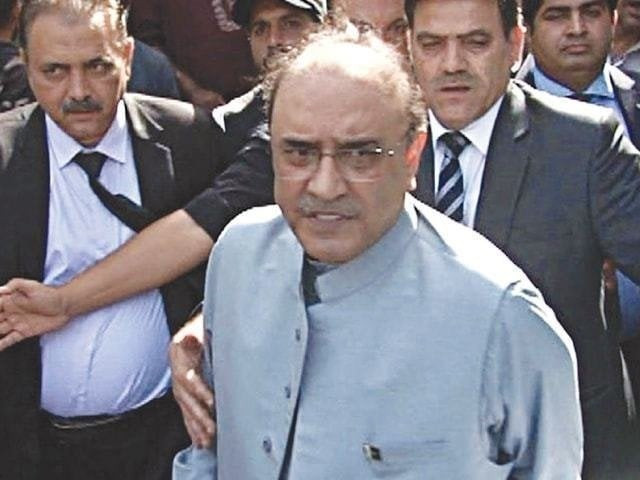IHC seeks opinions on cases against Zardari, Fawad
Petitioners allege former president, federal minister omitted properties in 2018 nomination forms

The Islamabad High Court (IHC) on Monday sought arguments on maintainability of a petition challenging the eligibility of former president Asif Ali Zardari and Federal Minister Chaudhry Fawad Hussain as members of the National Assembly.
Ruling Pakistan Tehreek-e-Insaf’s Khurram Sher Zaman and Usman Dar had filed a petition in January 2019, challenging the appointment of Zardari as MNA alleging that the former president is not Sadiq and Ameen as he did not mention his New York flat in the nomination forms submitted in 2018.
Same goes for Fawad. His appointment as MNA was challenged by TV anchor Sami Ibrahim, who alleged that the federal minister failed to mention his properties in Lahore and Jhelum in the 2018 nomination papers.
During the proceedings, the court summoned attorney general for Pakistan on the next hearing for assistance and also sought the opinion of the National Assembly speaker and Senate chairman regarding such matters.
Chief Justice Athar Minallah, hearing the cases, directed petitioner Zaman's lawyer to give references of top courts' judgement and satisfy the court regarding maintainability of the case.
“Why the court should interfere in such matters,” the bench asked.
The petitioner's lawyer submitted documents in support of his case against Zardari. The court remarked that it had previously disqualified a former foreign minister.
In April 2018, the IHC had disqualified Khawaja Muhammad Asif from holding public office for life over possessing a work permit (Iqama) of the United Arab Emirates (UAE).
The chief justice remarked that there were several parliamentary committees including the Public Accounts Committee (PAC) which could view such matters.
The petitioner's lawyer said that the court had served notices to the respondents in this case and sought comments.
He said that only a voter of the relevant constituency could challenge the eligibility of a public representative under the ECP Act.
The lawyer said that the election tribunal could disqualify any representative before the elections on violation of law who could then file an appeal in the appellant tribunal in the given time. However, after the elections, any candidate could move the Supreme Court if declared disqualified, he added.
The chief justice remarked that this court had raised the question that why it should interfere in such matters when the Election Commission of Pakistan (ECP) itself could see into it.
The chief justice said that elected members were stakeholders of the parliamentary system. Such matters could damage public's trust on judiciary, he observed.
The lawyer said that the court had served notices to respondents on April 4, 2019 but no comments were received yet.
The court asked the lawyer to first satisfy the bench regarding the maintainability of the case.
The chief justice said that it was the responsibility of parliament to stop involvement of courts in such matters.
The lawyer said that the top court had decided Khawaja Asif’s case on merit but it did not declare the case beyond the court's jurisdiction.
The court said that it had sought the opinions of the NA speaker and Senate chairman and adjourned the cases till April 6.



















COMMENTS
Comments are moderated and generally will be posted if they are on-topic and not abusive.
For more information, please see our Comments FAQ